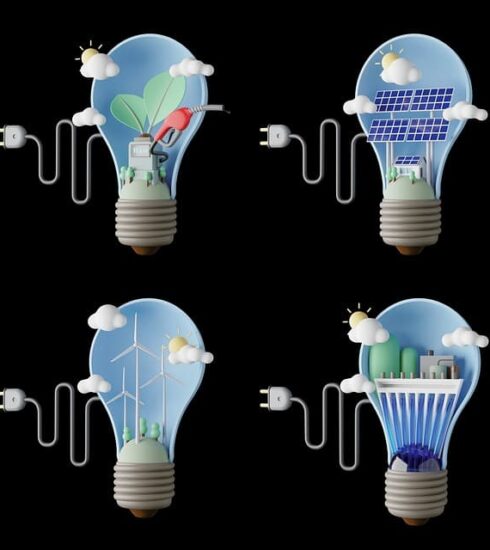Planning for Home Renewable Energy Systems On A Budget
If you want to invest deeply in home renewable energy systems this season, you might spend hours deciding what options to choose. The reason is that there are several factors to consider, including discovering your current electricity usage and your county’s (or local) requirements. You may even have to decide whether the energy system has to be switched on or off at certain times.
We put this guide together with Kara Johnson CEO of PaydayBears, a leading provider of cash advance online loans to customers. He guaranteed us that borrowing loans is easy with the company, as clients don’t have to worry about poor credit or bad credit scores.
So, if you need financial aid to help plan home renewable energy systems, you might as well get to it with this assurance. Let’s talk about how to plan on a friendly budget here.
Below are some expert tips to keep in mind while planning for home renewable energy systems.
Discover Electricity Needs
Getting a home renewable energy system means discovering your electricity needs. You need to calculate this factor to get the most appropriate home technology effectively. In fact, it will help in determining the device’s size and energy usage.
A proper way to discover electricity needs is to perform a load analysis using the Watt-recording method. It involves measuring how much power is consumed when all devices (or electrical appliances) are connected to your home’s central power source. Find out those that remain connected for longer and those that are only plugged in short-term. The former is a non-selectable load, while the latter is a selectable load.
If you’ve recorded these parameters (wattage), you can discover how much electricity is consumed per the hours used daily. Whatever data you get, you can buy an energy system that meets electricity needs equivalent (or less) to selectable loads.
Understand Local Community Requirements and Codes
After you understand how much electricity you will need to power the renewable energy system, you should also find out your local community’s requirements and codes. Every county or state has a list of conditions that must be met to use a home energy system. These conditions or requirements include a specific energy limit and the installation procedure. There are also some building codes to follow – you can always check with a building office to know these requirements.
And to ensure that people comply with these standards, local counties have electrical inspectors to verify building safety. They inspect buildings occasionally. A good renewable device for homes will always meet the National Electrical Code (NEC) systems’ technical standards.
Choose a Good Renewable Energy Technology
Another factor to consider is the specific renewable energy technology. This criterion comes after discovering your building’s system requirements and electricity needs. Renewable energy systems could be solar, wind, hydropower, or hybrids. Depending on your needs, you should select a good option, especially after understanding how it works and the maintenance cost.
Since you are on a budget, you should only choose affordable but effective options online. You could even choose from brands that provide additional services, such as installation and maintenance, to save costs. Check out online reviews about home renewable energy technology brands and affirm they are perfect.
The System’s Connection
The system’s connection is also important when choosing renewable energy technology. It simply involves how you choose to connect the device for use.
For instance, there are two main types – a stand-alone (or off-grid) and a grid connection system. The former connects the renewable device to an alternative electricity source, while the latter connects to a power grid.
Most people opt-in for grid connection because it allows them to sell additional power to their electricity provider. The only con is that electricity transmission often requires a balance-of-system component (such as a controller or a battery).
As long as you remember these tips, you shouldn’t have a problem planning for a budget-friendly home renewable energy system.





